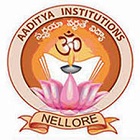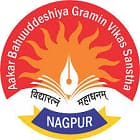Top Sciences Colleges in India
India has a number of top science colleges known for academic excellence and research contributions. Institutions like Indian Institute of Science (IISc) in Bangalore, offer a vibrant research environment, in various disciplines. The Indian Institutes of Technology (IITs), such as IIT Bombay and IIT Delhi, are renowned for their rigorous science programmes, producing top-notch graduates. The Loyola College Chennai and Presidency College in Kolkata are esteemed for their comprehensive science curriculum. Additionally, institutes like St Stephens College contribute to the diverse landscape of science education with a focus on subjects like Physics, Chemistry, etc. These institutions not only prioritise theoretical knowledge but also emphasise practical applications, nurturing innovation and critical thinking among students. As the top science colleges in India continually evolve, adapting to global advancements, and play an important role in shaping the future of scientific research.
List of the Top Science Colleges in India
No | Name of the institution | Ownership |
|---|---|---|
1 | Private | |
2 | Govt | |
3 | Govt | |
4 | Govt | |
5 | Govt | |
6 | Private | |
7 | Private | |
8 | Govt | |
9 | Govt | |
10 | Govt | |
11 | Govt | |
12 | Private | |
13 | Govt | |
14 | Govt | |
15 | Private |
Courses offered in the Top Science Colleges in India
No | Name of the institution | Courses offered |
|---|---|---|
1 | ||
2 | ||
3 | ||
4 | ||
5 | ||
6 | ||
7 | ||
8 | ||
9 | ||
10 | ||
11 | ||
12 | ||
13 | ||
14 | ||
15 |
Career Opportunities for Science Graduates
Research Scientist: Opportunities exist in various fields, from life sciences to physics, where scientists engage in groundbreaking research.
Data Analyst: Science graduates with analytical skills find roles in data analysis, helping organisations make informed decisions.
Healthcare Professions: Graduates can pursue careers in medicine, nursing, or allied health professions.
Science Journalism: Communicating scientific discoveries to the public through writing or broadcasting.
Teaching and Education: Opportunities in schools, colleges, and educational institutions to impart scientific knowledge.
Information Technology (IT): Applying scientific knowledge to IT roles, such as system analysis or software development.
Quality Control Analyst: Ensuring products meet quality standards in industries like pharmaceuticals and food production.
Entrepreneurship: Launching startups focused on scientific innovations or technology-driven solutions.
Forensic Scientist: Investigating and analysing evidence in criminal cases.
Consultancy: Providing expert advice to businesses or government agencies on scientific matters.
Aacharya Sitaram Chaturvedi Mahila Mahavidyalaya, Varanasi
Ownership:
Varanasi, Uttar Pradesh
Aacharya Sitaram Chaturvedi Mahila Mahavidyalaya, Varanasi
Ownership:
Varanasi, Uttar Pradesh
Aaditya Degree and PG College, Nellore
Aakar College of Management for Women, Nagpur
Ownership:
Nagpur, Maharashtra
Aakar College of Management for Women, Nagpur
Ownership:
Nagpur, Maharashtra

Aala Hazrat Degree College, Bareilly
Ownership:
Bareilly, Uttar Pradesh
Aala Hazrat Degree College, Bareilly
Ownership:
Bareilly, Uttar Pradesh
AMIMT, Pathankot - A and M Institute of Management and Technology, Pathankot
Ownership:
Pathankot, Punjab
AMIMT, Pathankot - A and M Institute of Management and Technology, Pathankot
Ownership:
Pathankot, Punjab
Aaradhana Degree College, Ahore
- Fees : ₹44.80 K
- B.Sc. (1 Course)
AAR and BMR Degree College, Vijayawada
Ownership:
Vijayawada, Andhra Pradesh
AAR and BMR Degree College, Vijayawada
Ownership:
Vijayawada, Andhra Pradesh

Aashwasan College Education and Research Centre, Pali
Ownership:
Bagawas, Rajasthan
Aashwasan College Education and Research Centre, Pali
Ownership:
Bagawas, Rajasthan
Abasaheb Marathe Arts and New Commerce Science College, Rajapur
Ownership:
Rajapur, Maharashtra
Abasaheb Marathe Arts and New Commerce Science College, Rajapur
Ownership:
Rajapur, Maharashtra

Abbas Khan College for Women, Bengaluru
Ownership:
Bangalore, Karnataka
Abbas Khan College for Women, Bengaluru
Ownership:
Bangalore, Karnataka
Abbnoor Institute of Information Technology, Faridkot
Ownership:
Faridkot, Punjab
Abbnoor Institute of Information Technology, Faridkot
Ownership:
Faridkot, Punjab
Abdul Ahad Azad Memorial College, Bemina

Abdul Razaq Memorial Degree College, Shahpur
Ownership:
Sambhal, Uttar Pradesh
Abdul Razaq Memorial Degree College, Shahpur
Ownership:
Sambhal, Uttar Pradesh
Abhay Pratap Singh Degree College, Kaushambi
Ownership:
Kaushambi, Uttar Pradesh
Abhay Pratap Singh Degree College, Kaushambi
Ownership:
Kaushambi, Uttar Pradesh
Abhedananda Mahavidyalaya, Birbhum

Abhinav College of Arts Commerce and Science, Thane
Ownership:
Thane, Maharashtra
Abhinav College of Arts Commerce and Science, Thane
Ownership:
Thane, Maharashtra
Abhinav Pragya Mahavidyalaya, Sarila
Ownership:
Niwada, Uttar Pradesh
Abhinav Pragya Mahavidyalaya, Sarila
Ownership:
Niwada, Uttar Pradesh
Abhinav Seva Sansthan Mahavidyalaya, Kanpur
Ownership:
Kanpur, Uttar Pradesh
Abhinav Seva Sansthan Mahavidyalaya, Kanpur
Ownership:
Kanpur, Uttar Pradesh

Abhyudaya Degree College, Srikakulam
Ownership:
Srikakulam, Andhra Pradesh
Abhyudaya Degree College, Srikakulam
Ownership:
Srikakulam, Andhra Pradesh
ABI and ABI College Arts, Science and Technology, Thanjavur
Ownership:
Thanjavur, Tamil Nadu
ABI and ABI College Arts, Science and Technology, Thanjavur
Ownership:
Thanjavur, Tamil Nadu
- Fees : ₹58.89 K
- B.Sc. (14 Courses)
ABV Government Degree College, Jangaon

AcSIR Chennai - Academy of Scientific and Innovative Research Chennai
Ace Institute of Management and Technology, Budaun
Ownership:
Budaun, Uttar Pradesh
Ace Institute of Management and Technology, Budaun
Ownership:
Budaun, Uttar Pradesh
Acharya Brojendra Nath Seal College, Cooch Behar
Acharya Institute Graduate Studies, Bangalore

AIGS Bangalore - Acharya Institute of Graduate Studies, Bangalore
AIHS Bangalore - Acharya Institute of Health Sciences, Bangalore
Ownership:
Bangalore, Karnataka
AIHS Bangalore - Acharya Institute of Health Sciences, Bangalore
Ownership:
Bangalore, Karnataka
A.J.C Bose College Kolkata - Acharya Jagadish Chandra Bose College, Kolkata
Acharya Kalu Kanya Mahavidyalaya, Ladnun

Acharya Narayana College, Sultanpur
Ownership:
Sultanpur, Uttar Pradesh
Acharya Narayana College, Sultanpur
Ownership:
Sultanpur, Uttar Pradesh
Acharya Narendra Deo College, Samastipur
Acharya Narendra Deo Kisan PG College, Gonda
Acharya Narendra Dev College, New Delhi
NIRF Ranking:
21- Exams: CUET UG
- Fees : ₹61.62 K
- B.Sc. (4 Courses)

Acharya Narendra Dev Mahapalika Mahila Mahavidyalaya, Kanpur
Acharya Panth Shri Grindh Muni Naam Saheb Government PG College, Kawardha
Ownership:
Kawardha, Chhattisgarh
Acharya Panth Shri Grindh Muni Naam Saheb Government PG College, Kawardha
Ownership:
Kawardha, Chhattisgarh
APC College Kolkata - Acharya Prafulla Chandra College, Kolkata
Acharya Shri Mahapragya Institute of Excellence, Bhilwara
Ownership:
Asind, Rajasthan
Acharya Shri Mahapragya Institute of Excellence, Bhilwara
Ownership:
Asind, Rajasthan

ACME Institute of Management Technology, Bareilly
Ownership:
Bareilly, Uttar Pradesh
ACME Institute of Management Technology, Bareilly
Ownership:
Bareilly, Uttar Pradesh
AIMSR Indore - Acropolis Institute of Management Studies and Research, Indore
Adarsh Arts and Commerce College, Gadchiroli
Adarsha Science Jairamdas Bhagchand Arts and Birla Commerce Mahavidyalaya, Amravati
Ownership:
Amravati, Maharashtra
Adarsha Science Jairamdas Bhagchand Arts and Birla Commerce Mahavidyalaya, Amravati
Ownership:
Amravati, Maharashtra
Adarsh Bhartiya College, Pathankot
- Fees : ₹1.10 Lakhs
- B.Sc. (5 Courses)




